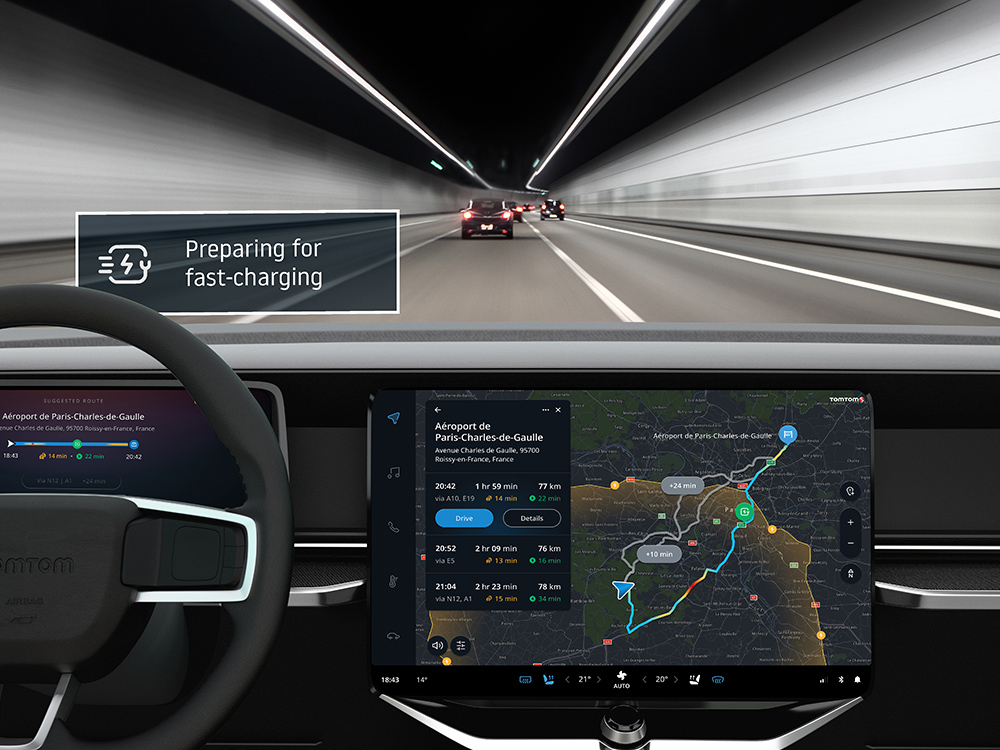
TomTom is taking on the “range anxiety” issue associated with electric vehicles with enhancements to its technology suite.
Among the key questions a potential buyer of an electric vehicle (EV) want answers to are: “Will it comfortably get me to my destination?” and “Are there enough charging points along my routes?”
These questions have been historically difficult to answer due to limited data and immature algorithms. The range predictions of electric vehicles have fluctuated between underestimating and overestimating by more than 30 percent.
A study published in the scientific journal Nature Climate Change by researchers from the University of Toronto concluded that 90 percent of light-duty cars on American roads need to be electric by 2050 to keep the transportation sector in line with climate mitigation targets. However, the anxieties which continue to surround EVs pose a serious barrier to their adoption.
Antoine Saucier, Managing Director at TomTom Automotive, said:
“If we want a future with cleaner air, we need to drive the electric vehicle revolution from the front. That means reducing the barriers to people choosing electric vehicles and having a 360° approach to EVs that differentiates us from the competition. It’s no surprise that our extensive suite of deeply-integrated EV location-enabled technologies continues to be selected by leading automakers to power this EV revolution.”
TomTom’s latest enhancements to its EV technology suite take on some of consumers’ biggest anxieties when it comes to electric vehicles.
Starting with range predictions, TomTom claims it has demonstrated single-digital accuracy for a 180km trip by factoring in current and maximum battery level, driving speed, road type and gradient, as well as historic and real-time traffic data.
TomTom is providing greater certainty to electric vehicle drivers of where they can get a top-up charge with enhanced long-distance EV routing. The improved system optimises routes based on the range and recharging behaviour of the vehicle, the traffic situation on the road, and real-time charging point information. If it’s calculated that multiple shorter stops might be faster, the recommendation will be made to the EV driver.
The recently-announced TomTom Navigation for Automotive features deep integration with compatible vehicles which allows it to further optimise EVs by enabling functions such as battery pre-conditioning. Using information about upcoming charging along the route, the vehicle is able to prepare its battery for optimal fast-charging performance to limit how long drivers spend at a charging point and improve battery life.
All of the enhancements TomTom has made to its EV technology suite will help to tackle some of the main barriers to adopting electric vehicles and drive the uptake needed to achieve carbon emissions reduction targets.
Source: IoT Tech News
